MIA demands an explanation from two journalists’ parents about posts of their children on Facebook
Internal affairs officers questioned two journalists’ mothers living in the region regarding the comments on social networks. In fact, the journalists reside in Tashkent. After the incident caused an uproar, the ministry said that the officials responsible had been reprimanded.
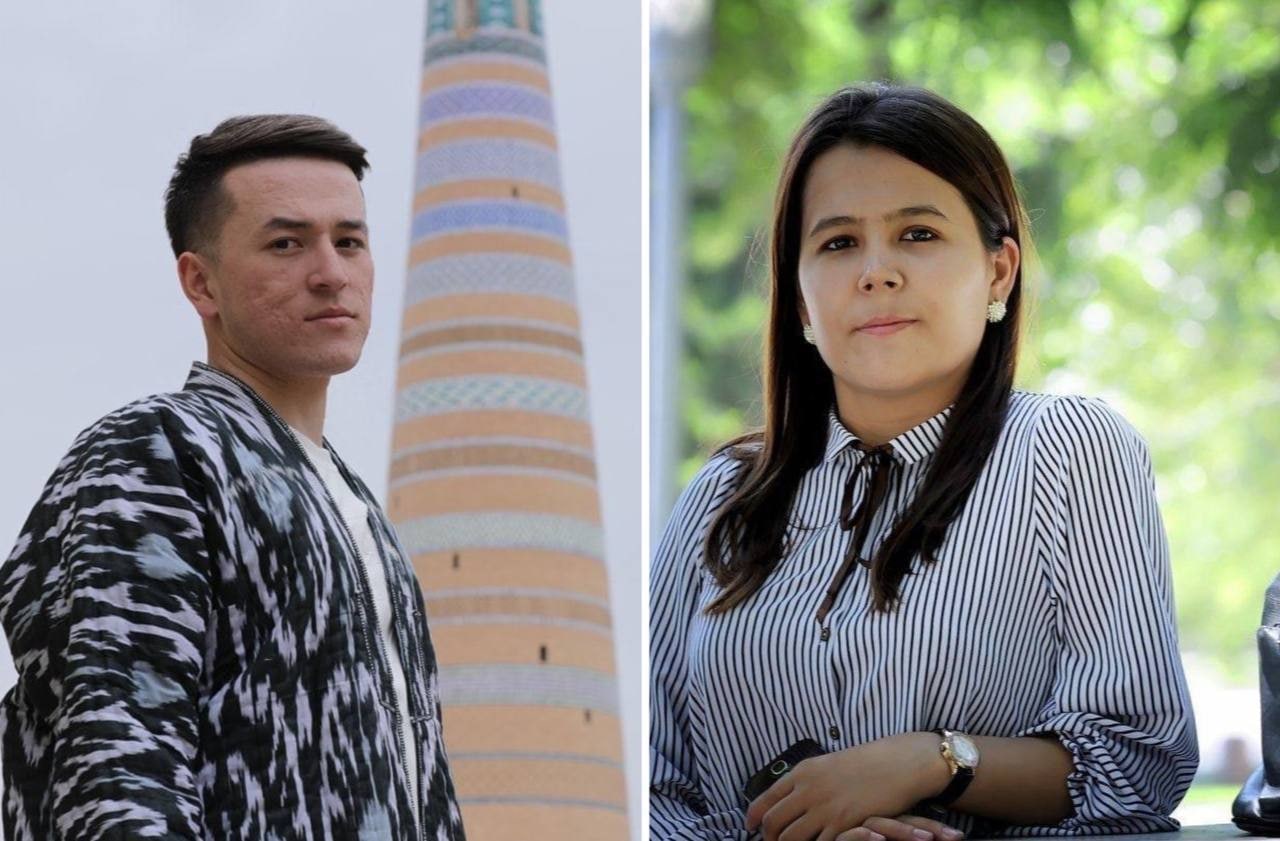
Journalist Inobat Akhadova reported that her mother was summoned to Narpay district DIA on December 8 for her posts on Facebook.
“Yesterday, while I was sitting in the room, the phone rang from the village. I heard my mother’s worried voice. She asked if everything was fine with me. Allegedly, my parents were called to the Migration and Citizenship Department (passport desk) of the district DIA. My father could not go because of his health, but my mother came.
My mother said that the MIA officer (he did not introduce himself, my mother also forgot to ask because she was in a hurry) talked to my mother about my posts on Facebook. He asked the following questions: Why did she write like that, why did she say that in her post, and why did she do that? My parents are old people, they don’t follow social networks. Naturally, my mother did not quite understand which of my posts they were referring to. The only thing I vaguely remembered were the posts from a long time ago, the beard, and thoughts on religious topics (interestingly, I don’t write about these topics at all). At the end of the conversation, they took my phone number and said that there was no need to worry,” she wrote on her page on the social network.
The journalist questioned why her parents were called for an interview at the DIA and not herself for the posts she wrote, and what was the purpose of this.
“Did they try to pressure my parents and me through this work? They took my phone number, but no one has called or explained the situation so far.
I am 27 years old, a citizen with legal capacity who must answer for her actions and words. Don’t bother my parents, who are old and whose health is more important to me than anything else, if you want to clarify something, ask me.
On Facebook, I write my personal thoughts using my constitutionally guaranteed right to freedom of thought and speech. Of course, without affecting someone’s freedom and dignity,” Inobat Akhadova emphasizes.
A similar situation happened today, December 9, with Gazeta.uz reporter Shohrukh Khaydarov.
“In the morning, I received a call from a strange number. When I picked up, a stranger said: “I’m from department of internal affairs, I came to your house, where are you, when will you come, we need to talk”. Allegedly, he was from the DIA investigation department, he wanted have a talk with me on my comment posted on Facebook.
My poor mother doesn’t understand these things very well, her blood pressure went up. My father was afraid and made a separate phone call. So, the DIA official disturbed the peace of elder people in the house and put their health in danger!
It’s funny, being a DIA employee, he doesn’t know where I’m studying, even though I’ve written it on my profile. I live in Tashkent, if you have something to ask, call me here... In general, is there a special invitation for a written comment?!” the journalist writes on his social account.
According to Khaydarov, the police officer did not say exactly which comment he was talking about, but only revealed whose post it was. The journalist writes that he remembers exactly which comment he is talking about, but does not reveal it.
“My friends and relatives know very well that I do not write comments or spread unconfirmed information that endangers someone’s life or politics,” he wrote.
These two cases did not fail to attract the attention of activists. The public condemned the fact that parents of journalists were persecuted for their children’s opinions on social networks.
“Whether it was a misunderstanding or a deliberate act, according to what logic and law were the mothers interrogated for the words of their adult children? We need answers to such questions,” blogger Shakhnoza Soatova wrote.
“A gift to journalists-bloggers in Tashkent on the occasion of the Constitution Day (no, it’s not about the “30th anniversary of the Constitution” badge): because of their FB posts/comments, their parents living in the regions were called to the DIA or the police officers came and questioned their parents. There is unforgivable madness in my country…,” journalist Mukhrim Azamkhodjayev wrote ironically.
Shohrukh Giyosov, the MIA press secretary, says that the above two cases are not related to each other, that it was a “personal initiative” of the heads of the regional DIA.
“As it turns out, on the personal initiative of the DIA leadership of the Narpay district of Samarkand region and Karshi city of Kashkadarya region, public activists have organized a conversation with the relatives of I. Akhatova and Sh. Khaydarov, asking them to take an impartial approach to various events and temporary difficulties in society,” Giyasov made a statement on his Telegram channel.
The press secretary of the minister said that the employees who called the journalists’ relatives for an interview for their opinion on social networks were reprimanded.
“Dear journalists and public activists, the above situation has been investigated and the involved employees have been reprimanded. In the future, we ask you to contact the information services of the internal affairs bodies when you receive requests or proposals regarding your activities related to the public control of the internal affairs bodies,” Shohrukh Giyasov wrote.
Moreover, on December 6, blogger Farrukh Samarkandiy from Samarkand also wrote that two people were summoned to the DIA without official papers and interviewed for their comments on the Facebook.
“Their goal is intimidation,” the blogger commented on the actions of DIA officers.
Recommended
List of streets and intersections being repaired in Tashkent published
SOCIETY | 19:12 / 16.05.2024
Uzbekistan's flag flies high on Oceania's tallest volcano
SOCIETY | 17:54 / 15.05.2024
New tariffs to be introduced in Tashkent public transport
SOCIETY | 14:55 / 05.05.2023
Onix and Tracker cars withdrawn from sale
BUSINESS | 10:20 / 05.05.2023
Latest news
-
The Maldives – The Perfect Choice for a Halal-Friendly Holiday
SOCIETY | 19:00 / 25.07.2025
-
President Mirziyoyev dismisses three top officials from the Security Council staff
POLITICS | 13:56
-
What determines your pension in Uzbekistan – a full breakdown
SOCIETY | 13:54
-
Residents and businesses hit hard by frequent power cuts in Tashkent
SOCIETY | 13:01
Related News
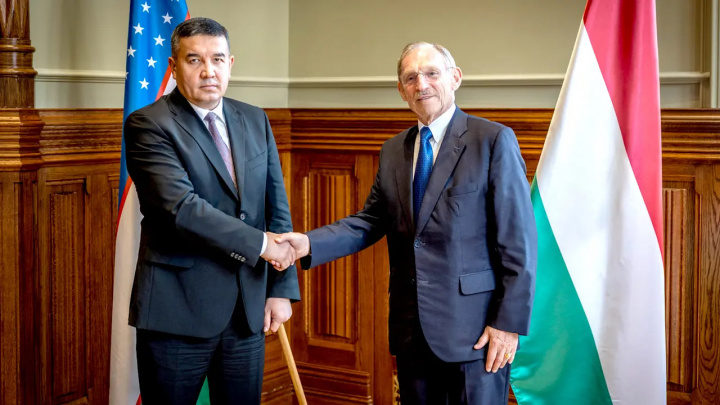
16:40 / 21.07.2025
Uzbekistan’s Interior Minister visits Hungary to strengthen security cooperation
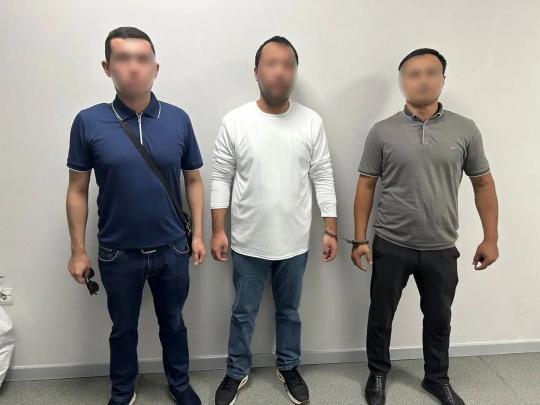
18:54 / 14.07.2025
Interpol fugitive deported from U.S. to Uzbekistan over large-scale embezzlement
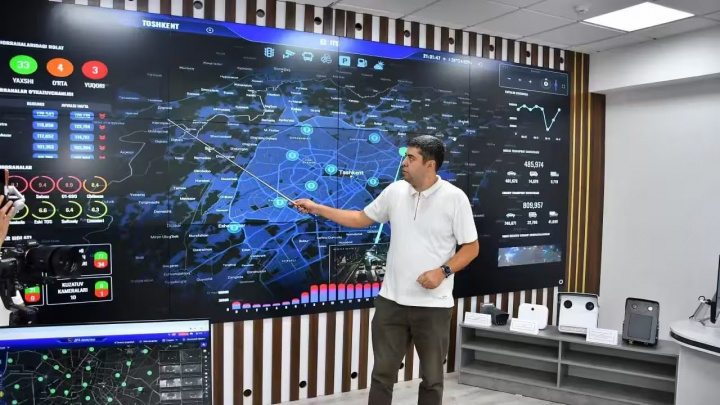
15:24 / 27.06.2025
Tashkent launches AI center to combat traffic jams and enhance road safety
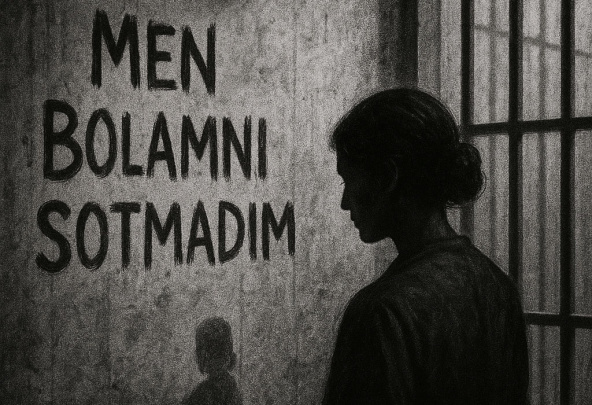
17:57 / 24.06.2025



